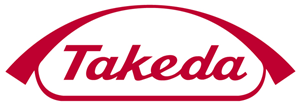Monthly liver enzyme tests are no longer required for those taking Letairis tablets (ambrisentan), according to the U.S. Food and Drug Administration (FDA). The drug is used to treat high blood pressure in the vessels that carry blood to the lungs (pulmonary arterial hypertension, or PAH).
Citing data from clinical trials and post-market reports, the FDA said that the drug poses only a low risk of liver injury. Information related to potential serious liver injury and the need to monitor for such serious injury is being removed from the drug’s boxed warning. [Read more…]
 The U.S. Food and Drug Administration today approved Edarbi tablets (azilsartan medoxomil) to treat high blood pressure (hypertension) in adults.
The U.S. Food and Drug Administration today approved Edarbi tablets (azilsartan medoxomil) to treat high blood pressure (hypertension) in adults.